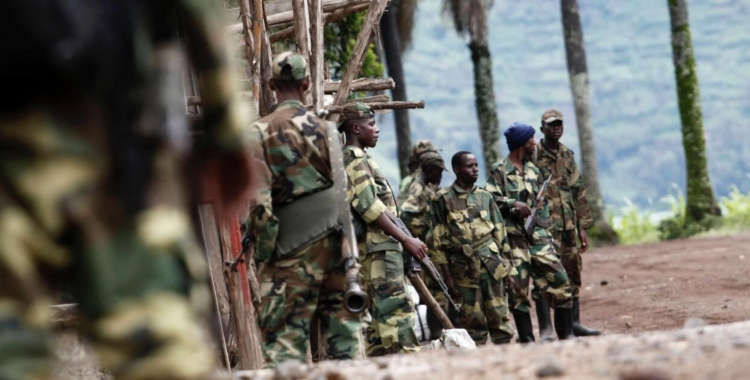"The March 23 Movement (M23) is ready to start to retreat and withdraw," said the group's political spokesman, Lawrence Kanyuka, in a statement released this Wednesday in local media.
The M23 requested a "meeting" with the joint military force of the East African Community (EAC, in its acronym in English), which began to be deployed to the east of the Democratic Republic of Congo (DRCongo), as well as with the mediator of the bloc regional, former Kenyan President Uhuru Kenyatta, who is leading the peace process between the Congolese Government and armed groups active in that part of the country.
The M23, considered a terrorist by Kinshasa and which has continued its attacks since the beginning of the first round of peace negotiations in Nairobi, last April, has so far remained outside the process, by imposition of the Congolese Government.
"The M23 reiterates its availability for a direct dialogue with the Government of the DRC to find a lasting solution for the root causes of the conflict in the east of the DRC", added Kanyuka in the note, issued on Tuesday and reproduced this Wednesday.
The group also confirmed accepting the "ceasefire" demanded last November 23 at a summit in Luanda sponsored by the President, João Lourenço, African Union mediator for the dispute between the DRC and Rwanda, which Kinshasa accuses of supporting the M23.
Although Kigali vehemently denies such support, a UN expert report released in August confirmed such cooperation.
At the Luanda summit, the Congolese President, Felix Tshisekedi, and the Rwandan Minister of Foreign Affairs, Vincent Viruta, who represented President Paul Kagame, called for a cessation of hostilities from 25 November, but the fighting never effectively ceased.
At least 272 people were killed in an M23 attack last week in the town of Kishishe in Rutshuru territory in North Kivu province, according to the Congolese government.
The rebels estimate, however, the number of civilians killed at eight, due to "stray bullets".
M23 was created in 2012, when Congolese soldiers revolted over the loss of power of their leader, Bosco Ntaganda, accused by the International Criminal Court (ICC) of war crimes; denouncing several violations of the peace agreement of March 23, 2009, which gives the name to the movement.
Among other conditions, the group demands the renegotiation of the agreement signed by the Congolese guerrilla Congrès National pour la Défense du Peuple (CNDP) for its integration into the army, in order to improve its conditions.
The CNDP, made up mainly of Tutsis (a group that was the main victim of the 1994 Rwandan genocide), was formed in 2006 to - among other objectives - fight the Hutus of the Democratic Forces for the Liberation of Rwanda (FDLR), founded in 2000 by leaders associated with the genocide and other Rwandan exiles in the DRC to regain political power in Rwanda.
After years of inactivity, the M23 resumed fighting last March with the Armed Forces of the DR Congo (FARDC), causing the displacement of at least 340,000 people in the east of the country, according to the UN.
After months of truce, fighting resumed in October and the M23 advanced to the siege of Goma, the capital of North Kivu – less than 100 kilometers from the Rwandan capital, Kigali, on the other side of the border – which the rebels took in 2012.
East DR Congo has been mired in conflict for more than two decades, fueled by rebel militias and the Congolese army, despite the presence of the United Nations peacekeeping mission (MONUSCO).







